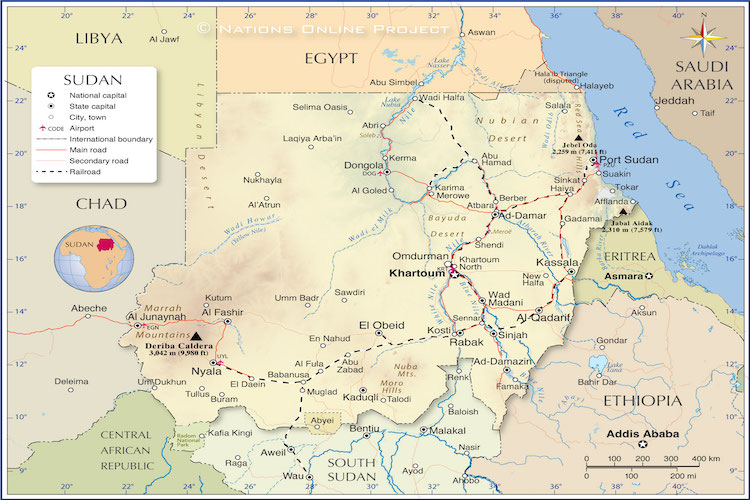By Lisa Vives, Global Information Network
NEW YORK, 21 April 2023 (IDN) — Meddling by foreign powers is said to have kept an intractable fire burning for years between an Arab-led government in Khartoum and an independent Republic of Sudan in the South.
But it is inarguable that arms sales from Western countries have kept Sudan flush with weapons for years.
Now, in a new report, Amnesty International has revealed how a shell company in the heart of London’s West End enabled huge prospective arms deals to war-torn South Sudan and other countries, thanks to regulatory gaps which are making the UK a hotspot for companies involved in illicit arms transfers.
“South Sudan is awash with weapons that have been used to kill and maim thousands of civilians, causing Africa’s biggest refugee crisis,’’ said Amnesty International’s Head of Arms Control and Human Rights. “The UK government has been a vocal proponent of a UN arms embargo on South Sudan, yet is turning a blind eye to illegal deals taking place right under its nose.”
“Right now the UK provides the perfect conditions to become a hotspot for the kind of irresponsible arms transfers that have devastated South Sudan.”
“These arms deliveries must be halted if they have not already reached South Sudan. In the meantime we continue to call for a comprehensive UN arms embargo on South Sudan that includes any financial or logistical activities that would facilitate these kinds of arms transfers. Without an embargo, weapons will continue to flow into South Sudan, and the consequences for civilians will continue to be catastrophic.”
“Ukraine and its state-owned arms exporter, Ukrinmash, must also cease supplying arms to South Sudan,” Amnesty Int’l warned, “and uphold the object and purpose of the Arms Trade Treaty which includes reducing human suffering and establishing the highest possible common international standards for regulating the international trade in conventional arms.”
Volker Perthes, the United Nations envoy to Sudan, said on 17 April that gunmen have been targeting and destroying offices of UN aid agencies, including the World Food Program, Unicef, and the United Nations Development Program—making it nearly impossible for agencies to carry out relief operations.
“What happens in Sudan will not stay in Sudan,” warned Alan Boswell of the International Crisis Group. “Chad and South Sudan look most immediately at risk of potential spillover. But the longer (the fighting) drags on the more likely it is we see major external intervention.”
Days of fighting between the Rapid Support Forces (RSF), the country’s paramilitary group, and the Sudanese Army, have left more than 5 million people in the northeast African country stranded at home without water or electricity, while hospitals struggle with mounting casualties.
The European Union’s ambassador to Sudan this week was assaulted in his home in Khartoum, according to Joseph Borrell, the bloc’s top diplomat. He called the attack a “gross violation of the Vienna Convention”.
“Security of diplomatic premises and staff is a primary responsibility of Sudanese authorities and an obligation under international law,” he wrote.
Finally, South Sudan’s immediate neighbors have also listed as the main conduits, and sometimes sponsors, of weapon supplies to all sides in the conflict.
These cross-border supplies have in some cases included weapons, ammunition, and aircraft lawfully exported to South Sudan’s neighbors from China, the European Union, and the United States.
Days of fighting between the Rapid Support Forces (RSF), the country’s paramilitary group, and the Sudanese Army, have left more than 5 million people in the northeast African country stranded at home without water or electricity, while hospitals struggle with mounting casualties. [IDN-InDepthNews]
Image: Political Map of Sudan. Source: The Nations Online Project.
Visit us on Facebook and Twitter.
IDN is the flagship agency of the Non-profit International Press Syndicate.
We believe in the free flow of information. Republish our articles for free, online or in print, under Creative Commons Attribution 4.0 International, except for republished articles with permission.

